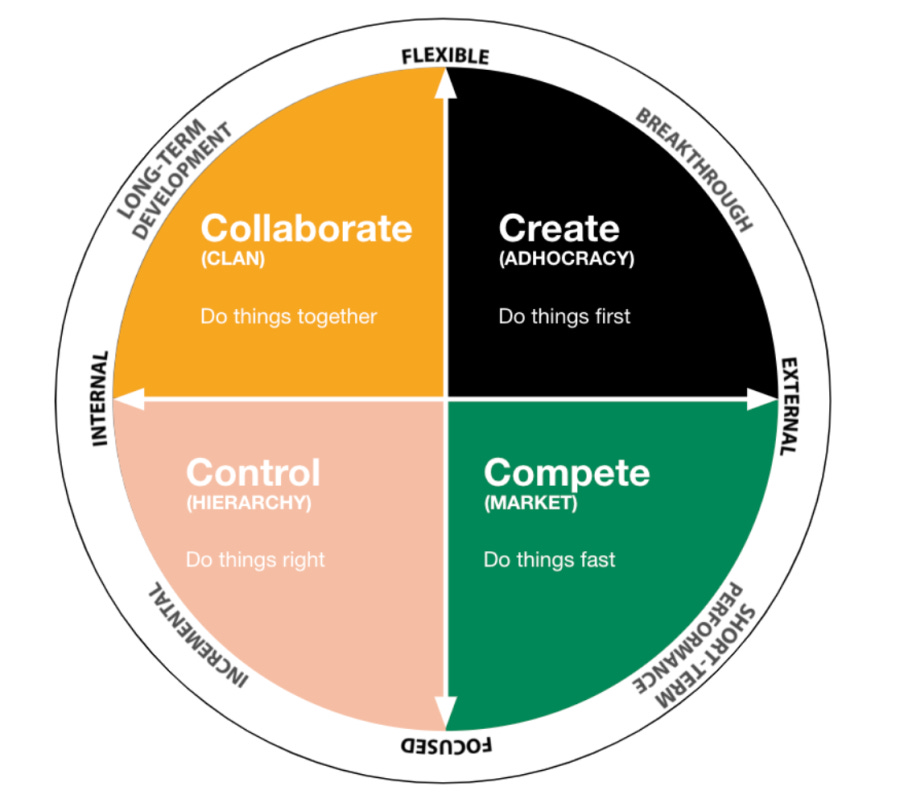Beyond Culture and Climate: The Role of Econiches in Organisational Dynamics
What's the difference between culture and climate, and why do we need another term called econiches?
Culture, climate and econiches. This blog has so far reflected my exploration of how ecological psychology can offer alternative and maybe more effective ways to understand and influence human behaviour within organisations.
Within organisations the term culture and climate are often & sometimes overused. Yet econiches not so. This is not to say we need another new word, but understanding what an econiche is may help us understand what we mean when we talk about culture and climate, and most importantly, how does understanding these terms add any value to the work of leaders and HR.
What do we mean by Culture?
First of all, there is no universal, singular definition of what culture is. But it can be defined distinctly from Climate. Culture is referred to a common shared underlying norms and assumptions that are rooted in history and are very hard to change.
There are two schools of thought when it comes to understanding a culture. One could be described as qualitative and the other quantitative.
Edgar Schein, a widely acknowledged scholar in Organisation Development describes it as
Organisational culture is the pattern of basic assumptions that a given group has invented, discovered, or developed in learning to cope with its problems of external adaptation and internal integration, and that have worked well enough to be considered valid, and, therefore, to be taught to new members as the correct way to perceive, think, and feel in relation to those problems. (Barends & Rousseau, 2022)
Schein gives 3 levels of an organisations culture
Consciously or unconsciously underlying assumptions and beliefs
Normal expectations and shared values about appropriate attitudes and behaviours
Artefacts that may reflect these (e.g. names of rooms or adornments on clothing)
What Schein allows room for is not the reductionist view of their being a defined number or characteristics of culture, it is a more constructivist approach, in that it is unique even down to the individual level (an econiche maybe). The alternative is what can be defined as a more quantitative approach-
An example of this is the Competing Values Framework. This approach looks to categorise and define a form of culture to measure a culture against. This can be quite alluring as other reductive approaches are (looks a lot like an MBTI, right?) and in some circumstances helpful. But like all models- they are either accurate or useful, rarely both. Both these approaches to measuring culture can be described along that useful-accurate continuum. Neither are better or worse, it just depends on the task and environment you are working in.
So, what is Climate then?
Ah yes, Climate. Climate goes back further then culture, with Kurt Lewin. Lewin is arguably the parent of OD and his work more influential than Freud in Psychology, if not a little less kinky (my very biased opinion). Of course, where Freud focussed on explaining behaviour through the individual subconscious, Lewin looked at the behaviour of many and used the term “Social Climate” to talk about a shared experience of an environment. This became “Organisational Climate” and can be defined as
‘the shared perceptions of and the meaning attached to the policies, practices and procedures employees experience’ (Barends et al., 2022)
Where cultures are hard to change, climates could be described as nested within cultures. For example, you might have a culture of Females being the dominant care giver for Children, and a Climate in an organisation that gives more parental leave to Females then Males. The climate is experienced via the policy, but it is also in congruence with and informed by the wider culture. One is much easier to change for an organisation.
Within the evidence for Climates, there is also more reliable and valid evidence for types of climates that can be measured and compared. These are-
Safety climate
Innovation climate
Learning climate
Ethical climate
Inclusion climate
Now these are still measured mostly by self-reporting tools, which in themselves have issues. An example of a question from a learning climate questionnaire is “My organisation provides sufficient resources to develop my competencies”. How much you agree with this statement will be variable, depending on a huge array of variables.
Okay, so what is an Econiche?
The challenge with both Culture and Climate is the level in which you measure them at. They are what JJ Gibson described as “perceiver-independent”(Heft, 2013, pg164.), in that they assume these cultural/climatic elements are equally inviting action across all people that enter that culture or climate. Ecological Psychology, whose starting point for describing, measuring and explaining behaviour is at the human-environment level. It is key there is a hyphen between the two, as they are coupled. The environment is shaped by the human as much as the human is shaped by the environment. In addition, this is a complex system, in that the human-environment is more than the sum of its parts. You cannot reduce each to it component parts, measure them, add them back together and expect them to behave in an expected fashion. The property of a complex system is the emergent, often self-organising and non-linear behaviours. A post-box is only inviting to post a letter to, if you have the need to send a letter and it is nearby. It is an example of a econiche located in both a narrow time-space. When running, it may invite you to lean on it.
This is what an Econiche is inviting us to look at. You cannot identify an econiche without specifying the human in it (a human with a letter or an elevated heart rate). Humans build econiches to suit their abilities (constraints) and needs to act (intentions) which in turn guides their behaviour. Let’s take the example of parental leave. Having equally shared parental leave is a human-independent symbol of a “inclusive culture”. But it has varying influence on behaviour depending on the individual circumstances (aka constraints) of the human in that climate. An 18-year-old with an intention to buy a house may not experience that climate, as their focus of intention, and thus attention is on the policies, systems, norms of behaviour that afford them to buy a house. Measuring the inclusivity of a climate assumes a singular often non-existent (due to the aggregation of scores) human accessing it.
Econiche’s help us understand the limitations of describing singular often universal cultures. They describe the landscape of invitations to act, but many of these are inaccessible or even hidden depending on the individual constraints of the human in that climate or culture.
Barends, E., & Rousseau, D. (2022). Organisational culture and performance: an evidence review. Scientific summary.
Barends, E., Rousseau, D., & Wietrak, E. (2022). Organisational climate: an evidence review. Scientific summary.
Heft, H. (2013). An Ecological Approach to Psychology. Review of General Psychology, 17(2), 162–167. https://doi.org/10.1037/a0032928







